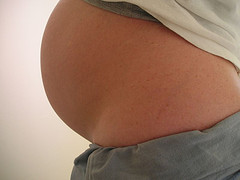 There is a new study that looks at mental health in a different way. Researchers found that expectant fathers who had mental health problems affected the behavior and emotional lives of their child. The kids didn’t exhibit the problems until years later. They aren’t sure exactly why this is happening, but it certainly appears to be the case.
There is a new study that looks at mental health in a different way. Researchers found that expectant fathers who had mental health problems affected the behavior and emotional lives of their child. The kids didn’t exhibit the problems until years later. They aren’t sure exactly why this is happening, but it certainly appears to be the case.
A study was done that included 32,000 children in Norway. The results were recently published in Pediatrics. It suggests something that most people would not have guessed was possible. The risk for future mental health problems in young children may be identified early on by examining the prenatal mental health of the children’s fathers.
Information was collected through a screening questionnaire that was given to fathers. They were asked questions about their mental health status during the pregnancy. Later on, the mothers were given a different questionnaire. This one asked questions about their children’s development and difficulties.
There seems to be a correlation between fathers who scored highly for psychological distress, depression, and anxiety at week 17 or 18 or the baby’s gestation, and a higher level of emotional and behavioral difficulties at age 3 for the child. This could include disruptive behavior, anxiety, and difficulties getting along with other children.
The researchers then controlled for certain factors. The factors included the age of the father, marital status, physical ailments, alcohol use, cigarette smoking, and the mother’s mental health status. After controlling for those factors, the researchers found the same association between the mental health problems of an expectant father and the behavioral and emotional difficulties of that father’s 3 year old.
Why is this happening? Researchers aren’t sure. It could relate to any of the following:
* The child has genetically inherited a higher risk of emotional and behavioral difficulties from his or her father.
* Depressed fathers affect the mental health of the mother during the pregnancy in a way that affects the neonatal development of the child.
* The father’s mental state during the pregnancy could also be his mental state after the child is born, and the child is picking up on it or reacting to it.
There is a message that parents and physicians should take from this study. It is very important to be aware of depression in the father and the mother from the time that a pregnancy is realized. Physicians could screen for depression and make the appropriate referrals as soon as depression is detected.
Image by Omar Ziv on Flickr

